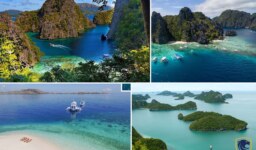Wildlife is often seen as pests or nuisances, but this is unfortunate. They are an integral part of our natural environment, and they deserve to be able to live free in the wild. But wildlife’s natural habitats are being destroyed at an alarming rate. If people don’t take steps to protect them, they will certainly vanish from the planet forever. Fortunately, there is one tried-and-true method for getting any animal species off the endangered list: tourism.
Gorgeous views and breathtaking landscapes can be found around every corner of our planet. Which means that tourists are ready and eager to come to check out these areas for themselves. If these areas are simply left to the wild, they will be snatched up by developers in no time. But tourism can help preserve them by creating revenue for conservation.
Here are some of the benefits of tourism in protecting wildlife:
1) Tourism provides long-term financial support for conservation initiatives.
Tourism helps to pay for projects that protect wildlife species, which are necessary because the costs of protecting species are very high. Conservationists must continually battle to protect species from extinction due to severely overhunting, habitat loss, climate change, pollution, etc. Tourism can help these organizations continue their work indefinitely.
2) Tourism can help control poaching.
There are many parks around the world that are in danger of being completely destroyed by poachers. However, because of tourism, visitors will often face certain fines or penalties for damaging wildlife habitats if they come into contact with endangered species native to these parks. This means that there is a constant threat of tourists being fined for interacting with the park’s wildlife in an illegal manner. Through this threat, tourists are more likely to carefully consider where they step when in the forest. Because of that, they don’t harm the environment in any way whatsoever.

How Tourism benefits Nature and Wild Life
3) Tourism can stop habitat loss due to population growth.
Much of the United States is boosted by national parks, which are teeming with wildlife. However, with the population constantly growing, there is now more than ever a need to preserve these areas.
4) Tourism can create viewing opportunities for animals that would otherwise be dangerous to encounter in person.
The most endangered animals or most likely to attack people. Pose the greatest threat to humans living near their natural habitats. For example, certain types of gorillas (gorillas deemed “dangerous”) were deported from their native habitats in Africa. And sent to sanctuaries in other parts of the world where they could still live within nature would be safe from human attacks. These sanctuaries have been set up to give visitors a unique opportunity to view these primates in person. They also help pay for the much-needed protection of these gorillas. In the wild, they would be much more dangerous to approach.
5) Tourism can raise awareness about animal conservation efforts.
Tourism is a great way for people to become inspired to take action against the problems facing our planet and its wildlife. People who see a natural problem can become immediately involved in fundraising for a cause or volunteer work at a wildlife sanctuary. Tourism can also encourage people to spread the word about these issues on social media or to their local legislators.
6) Tourism can create “green jobs.”
Tourism generates numerous jobs within the wildlife industry, particularly in tourism-related businesses, such as accommodations, restaurants, clothing stores, etc. These are typically considered “green jobs” because they help to protect the environment rather than harm it. More green jobs equal less pollution and more opportunities for young people looking for work.

How Tourism benefits Nature and Wild Life
7) Tourism is good for business.
The wildlife tourism industry generates a significant amount of revenue for local economies, and the creation of new jobs within this industry has a positive economic impact as well.
8) Tourism can help strengthen communities and foster cultural traditions.
Tourism helps create jobs and income for people in surrounding areas, strengthening the community. It also allows tourism-based businesses to hire local residents, who thus improve their own standard of living. This money gives local residents pride in their culture and provides an opportunity to carry on traditions that may otherwise die out with time.
9) Tourism can teach visitors new skills.
Tourism generally requires some type of prior education in wildlife biology, ecology, conservation, or tourism, but it can also help teach skills like first aid and wilderness survival. This helps to save lives in the event of loss of contact with the outside world, which is very common in some areas, for example, when wildfires ravage forests or when tourists get lost.
In addition to the general benefits listed above, ecotourism provides economic development for developing countries through increased tourism. It aids environmental protection through the direct involvement of the tourist in nature and conservation. Ecotourism can also improve regional conservation by educating people on the importance of protecting natural resources and wildlife. Additionally, ecotourism helps make a place a unique “destination,” an idealized location that is pleasant and enjoyable to visit, as well as meaningful.
What is the concept of ecotourism?
The concept behind ecotourism is that by entering into intimate interactions with nature (wildlife), humans gain a better understanding of nature’s ability to survive and thrive within its particular environment. Four national organizations have explored the concept of “ecotourism”: the National Geographic Society, the National Wildlife Federation, the United States Department of Agriculture Forest Service, and the International Ecotourism Society. This model is based on the notion that tourists should actively preserve nature rather than simply observing or experiencing it.

How Tourism benefits Nature and Wild Life
The Ecotourism Association has compiled a list of criteria for ecotourism destinations. Additionally, there are numerous considerations ranging from how much regulation should be imposed upon ecotourism activities to how to ensure that local people are fairly compensated for their labor power and use of natural resources. Achieving a successful, sustainable tourism operation requires a great deal of cooperation from both local communities and tourists.
Ecotourism “helps” severely threatened species by creating a market for their products. The tourist industry, in turn, provides the income necessary to help sustain nature and wildlife. This way, nature thrives, and wildlife is protected from extinction. In addition to helping species at risk of extinction, ecotourism has been shown to generate a diverse range of economic benefits for communities and countries throughout the world. The economic benefits of ecotourism are closely tied to the impacts of tourism on human, cultural, and environmental values.




